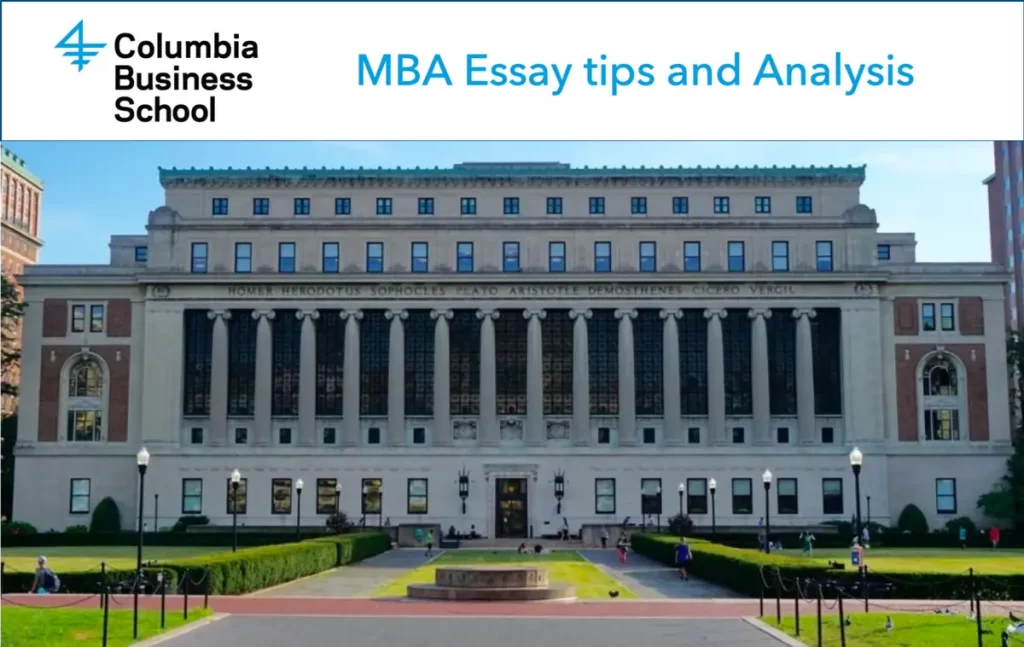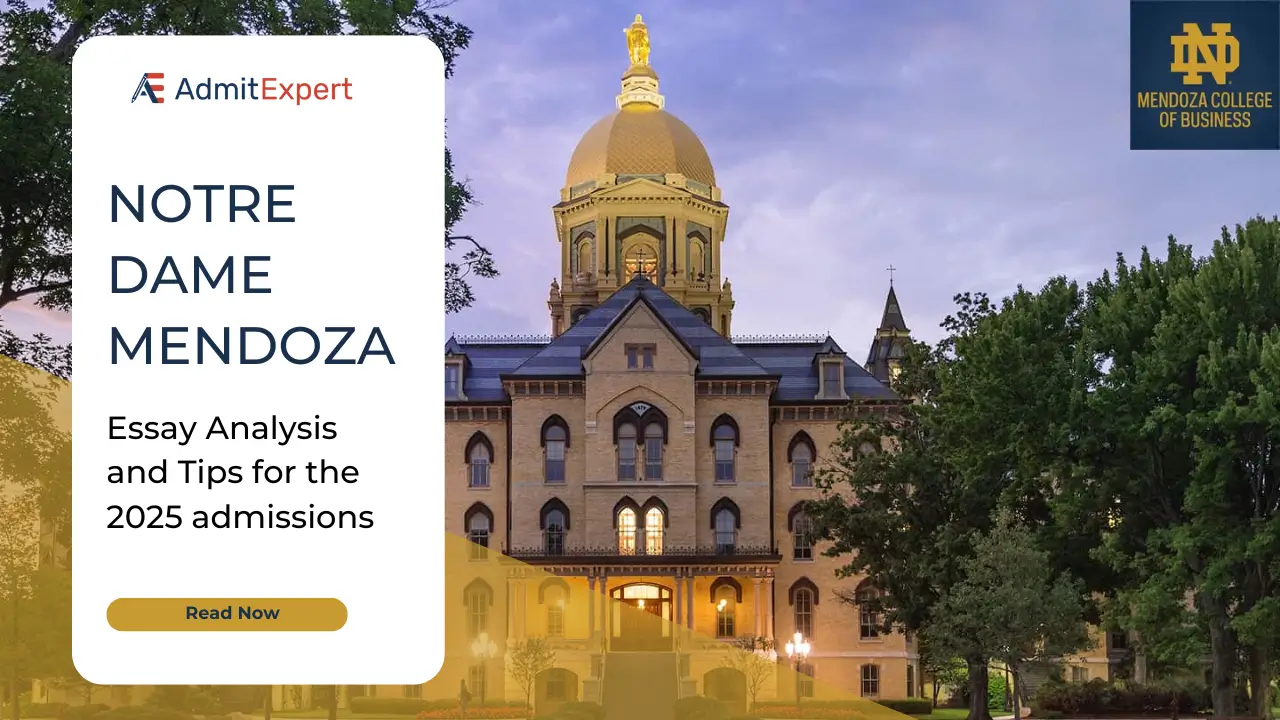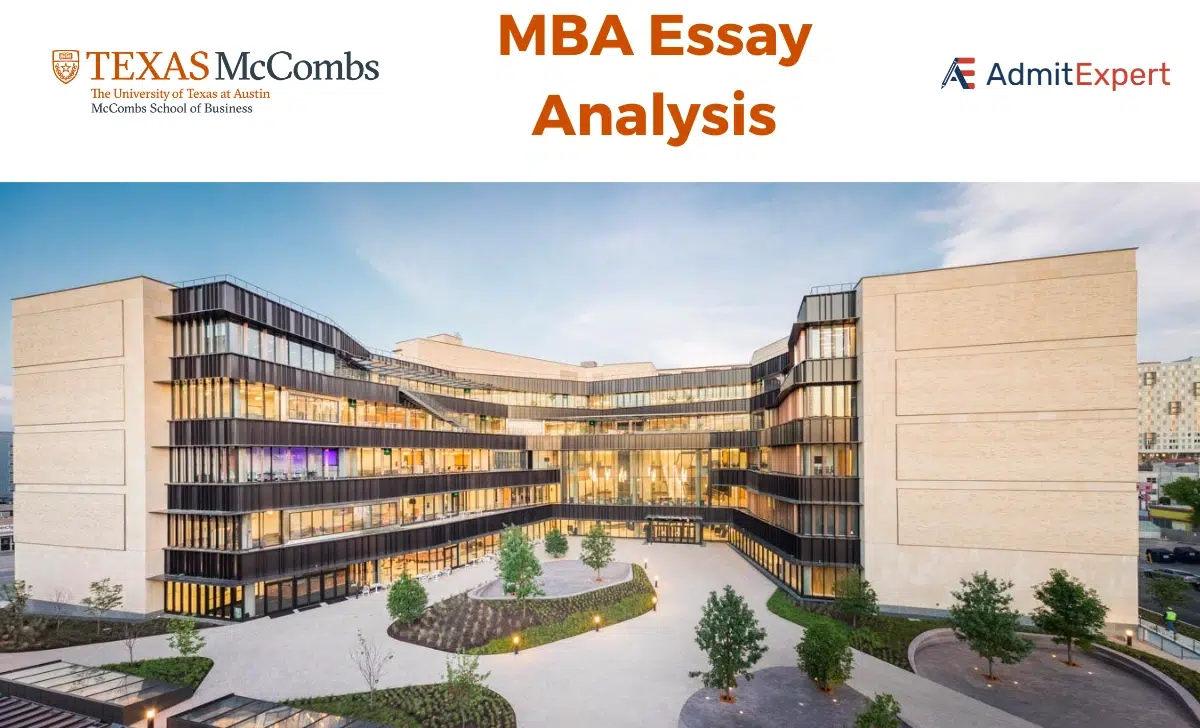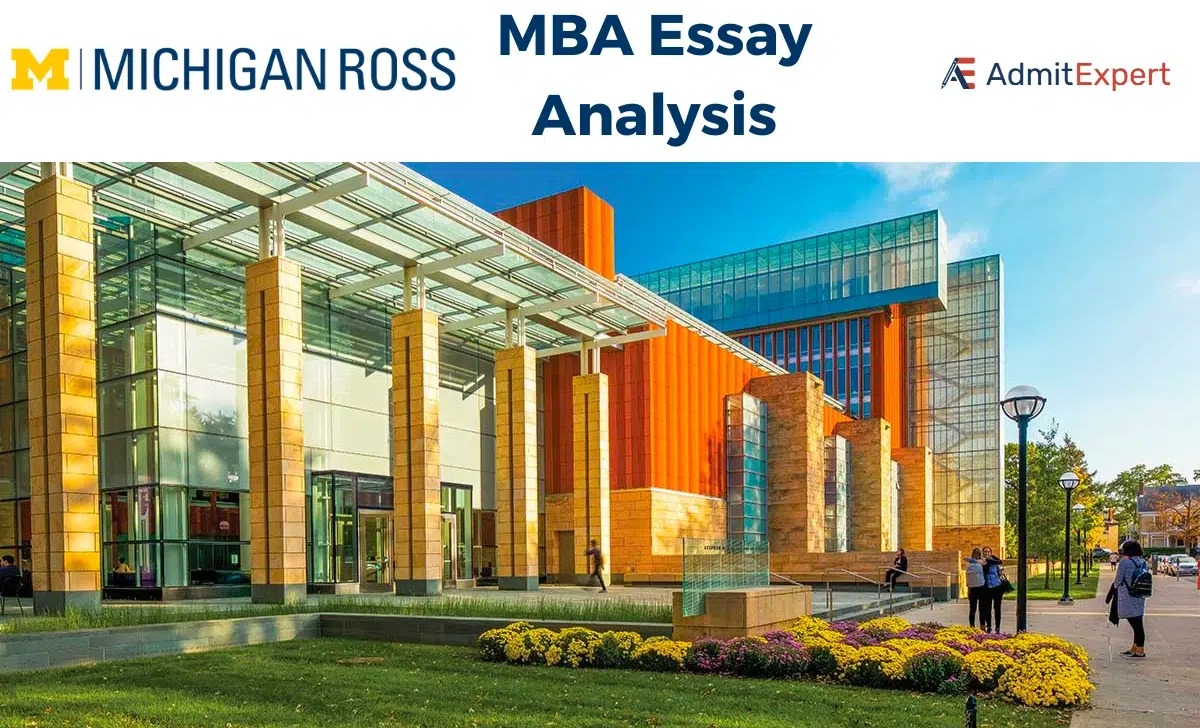The application and essay questions for the 2026 MBA program at Columbia Business School have been made available. The questions are similar to those from previous years, however, they have been revised to emphasize career objectives and fit.
Columbia University offers a fast-paced program in a fast-paced city. MBA students who aim to take full use of the unique resources given by Columbia and its surroundings in New York City will be a strong fit for the program. Another consideration is having the academic credentials to endure the rigors of Columbia.

Columbia Business School (CBS) asks its applicants to write a 50-word “short answer” about their goals and three essays that aren’t too long.
The first essay question from CBS is about candidates’ long-term career goals, just like the goal statement, but in much more depth (at 500 words).
The second essay asks applicants to explain why they want an MBA from CBS.
The third essay asks candidates to talk about a favorite book, movie, or song.
Read on for our full analysis of the questions for the Columbia MBA program.
Columbia MBA essays for 2026 intake
Applicants must complete Two short answer question and three essays for both January and August intakes.
January Essays
Short Answer Question 1
What is your immediate post-MBA professional goal? (50 characters maximum)
Short Answer Question 2
Why do you prefer the January-entry term? (50 characters maximum)
Essay 1
Through your resume and recommendation, we have a clear sense of your professional path to date. What are your career goals over the next three to five years and what is your long-term dream job? (500 words)
Essay 2
The Phillips Pathway for Inclusive Leadership (PPIL) is a co-curricular program designed to provide students with the skills and strategies needed to develop as inclusive leaders. Through various resources and programming, students explore and reflect on the following five inclusive leadership skills: Mitigating Bias and Prejudice; Managing Intercultural Dialogue; Addressing Systemic Inequity; Understanding Identity and Perspective Taking; and Creating an Inclusive Environment.
Describe a time or situation when you had the need to utilize one of these five skills, and tell us the actions you took and the outcome. (250 words)
Essay 3
We believe Columbia Business School is a special place with a collaborative learning environment in which students feel a sense of belonging, agency, and partnership–academically, culturally, and professionally.
How would you co-create your optimal MBA experience at CBS? Please be specific. (250 words)
August Essays
Short Answer Question 1
What is your immediate post-MBA professional goal? (50 characters maximum)
Short Answer Question 2
How do you plan to spend the summer after the first year of the MBA? If in an internship, please include target industry(ies) and/or function(s). If you plan to work on your own venture, please indicate a focus of business. (50 characters maximum)
Essay 1
Through your resume and recommendation, we have a clear sense of your professional path to date. What are your career goals over the next three to five years and what is your long-term dream job? (500 words)
Essay 2
The Phillips Pathway for Inclusive Leadership (PPIL) is a co-curricular program designed to provide students with the skills and strategies needed to develop as inclusive leaders. Through various resources and programming, students explore and reflect on the following five inclusive leadership skills: Mitigating Bias and Prejudice; Managing Intercultural Dialogue; Addressing Systemic Inequity; Understanding Identity and Perspective Taking; and Creating an Inclusive Environment. Please respond to one of the below (250 words).
- Describe a time or situation when you had the need to utilize one of these five skills and tell us the actions you took and the outcome.
- Alternatively, please share a specific example of how you made a team more collaborative or fostered a greater sense of community within an organization.
Essay 3
We believe Columbia Business School is a special place with a collaborative learning environment in which students feel a sense of belonging, agency, and partnership–academically, culturally, and professionally.
How would you co-create your optimal MBA experience at CBS? Please be specific. (250 words)
Optional Essay
If you wish to provide further information or additional context around your application to the Admissions Committee, please upload a brief explanation of any areas of concern in your academic record or personal history. This does not need to be a formal essay. You may submit bullet points. (Maximum 500 Words)
Short Answer Question
What is your immediate post-MBA professional goal? (50 characters maximum)
Examples of possible responses:
“Work in business development for a media company.”
“Join a strategy consulting firm.”
“Launch a data-management start-up.”
The important point to note here is that there is an upper limit of 50 characters and not words. The space between words will also be counted towards this limit.
Therefore, get straight to the point and answer this question with the job and industry. Don’t even waste the character limit for words like ‘I want to.’
So think about what you really want to do with your career in the near future and say it out loud. Don’t forget that the rest of your application needs to show that your stated goal fits with your current skills and deep interests, especially after you’ve gotten your MBA. This will show that your stated goal is attainable and give your claim more weight. If you can do this in 50 characters (not words! ), you will have done what the school wants you to do and answered their question well.
Short Answer Questions (January and August Intakes)
January Short Answer Question
Why do you prefer the January entry term? (50 characters maximum)
The CBS admissions committee is keen on understanding the specific motivations behind a candidate’s choice of the January-entry term, which forgoes the traditional summer internship. This term is ideal for those who have a clear post-MBA career path that doesn’t rely on the internship experience. Applicants who might already have a job secured, intend to return to a current employer, or are involved in a family business, often choose this route. Similarly, aspiring entrepreneurs who are certain about launching their own ventures may also prefer this entry. The committee seeks clarity and thoughtfulness in your rationale, rather than a generic or pre-determined answer. Your response should demonstrate a well-considered decision that aligns with your professional goals and the structure of the January-entry program.
January Short Answer Question Tips
- Be Direct and Specific: Given the 50-character limit, your answer must be concise and to the point. Clearly state your reason for choosing the January-entry term.
- Highlight Your Career Plan: Explain how skipping the summer internship aligns with your career goals. Whether you have a job secured, plan to return to your current employer, or intend to start your own business, make your reasoning clear.
- Demonstrate Thoughtfulness: Show that you have thoroughly considered your options and that the January-entry term is the best fit for your professional trajectory. Avoid generic statements and focus on your unique situation.
- Avoid Repetition: Instead of merely stating that you do not need a summer internship, explain why this is the case. Provide context that illustrates your understanding of your career path and the program’s structure.
August Short Answer Question
How do you plan to spend the summer after the first year of the MBA? If in an internship, please include target industry(ies) and/or function(s). If you plan to work on your own venture, please indicate a focus of business. (50 characters maximum)
This question aims to gauge your career planning and readiness for the MBA journey. The admissions committee looks for candidates who have a clear vision of their career trajectory and understand how the summer internship (or other summer plans) fits into their overall professional development. By detailing your intended industry or function for the internship, or the specific focus of your business venture, you demonstrate foresight and strategic thinking. The committee appreciates applicants who have researched the employment landscape, are aware of recruiting trends, and have realistic plans that align with their career aspirations.
August Short Answer Question Tips
- Detail Your Summer Plans: Clearly describe how you intend to spend the summer after your first year. Whether you plan to intern in a specific industry or function, or work on your own venture, provide precise details.
- Showcase Your Research: Reference CBS’s recent employment reports and align your plans with the school’s recruiting trends. This demonstrates that you have done your homework and understand the opportunities available.
- Connect the Dots: Illustrate how your summer plans fit into your overall career goals and the progression you envision throughout the MBA program. This helps the admissions committee see a clear, strategic path.
- Acknowledge the Journey: If achieving your summer goals requires additional effort outside the support of CBS’s Career Management Center, mention this. It shows that you are prepared for the challenges ahead and have a realistic plan to achieve your objectives.
Essay 1
Through your resume and recommendation, we have a clear sense of your professional path to date. What are your career goals over the next three to five years and what is your long-term dream job? (500 words)
As with any goals essay, it’s critical to bear in mind that this is not a theatrical retelling of your resume. However, you should include a few lines of background information to enable the reader to subsequently comprehend that you have the abilities and drive required to achieve your objectives.
In short, make sure that your comments build on what the admissions committee can find in your recommendations or resume, rather than repeating it.
This question asks about your short- and long-term goals. In contrast to long-term goals, short-term goals might be more specific. The admissions committee expects you to have a general idea of what you want to achieve in the future, but they don’t require the same amount of detail as they do for the immediate post-MBA aspirations. Columbia wants to know that you have a clear idea of where an MBA from Columbia can take you.
For example, maybe you want to run a company or division as its general manager. But for the most part, you have been working in marketing right now. After that, you could take classes in finance and strategy and do consulting projects while working as an intern at a start-up. All of these will help you get the required experience on your way to becoming a general manager.
Also, the part about a “dream job” really stands out. In light of this, your long-term goals should be ambitious, since top programs want to accept people who will change the world. Still, they should be based on your short-term goals, your MBA, and your career so far.
Remember, Columbia wants to know who you are and what makes you different from everyone else who has applied. Don’t try to be the perfect candidate. Instead, show your real personality, goals, and what drives you.
To learn more about what Columbia Business School is looking for and how to make your application stand out, get in touch with us at contactus@admitexpert.com
Essay 2
The Phillips Pathway for Inclusive Leadership (PPIL) is a co-curricular program designed to provide students with the skills and strategies needed to develop as inclusive leaders. Through various resources and programming, students explore and reflect on the following five inclusive leadership skills: Mitigating Bias and Prejudice; Managing Intercultural Dialogue; Addressing Systemic Inequity; Understanding Identity and Perspective Taking; and Creating an Inclusive Environment. Please respond to one of the below (250 words).
- Describe a time or situation when you had the need to utilize one of these five skills and tell us the actions you took and the outcome.
- Alternatively, please share a specific example of how you made a team more collaborative or fostered a greater sense of community within an organization.
Admissions Committee’s Expectations
The CBS admissions committee is looking for candidates who embody the principles of diversity, equity, and inclusion (DEI) and have actively engaged in fostering these values in their personal or professional lives. The PPIL program aims to cultivate leaders who can navigate and address DEI challenges effectively. By including this essay prompt, the committee seeks to understand your experiences and actions related to DEI, assessing your ability to reflect on these experiences and articulate the impact of your actions.
Key Aspects the Committee Looks For:
- Active Participation: Applicants should demonstrate that they were not passive observers but active participants in achieving a positive DEI outcome. This includes taking tangible actions and making significant contributions to addressing DEI challenges.
- Structured Reflection: The essay prompt encourages a structured response, similar to the STAR method (Situation, Action, Outcome). This structure helps in presenting a clear and concise narrative that showcases your involvement and impact.
- Connection to Personal Growth: The committee is interested in how the situation influenced you, your values, and your approach to leadership. Highlighting personal growth and learning from the experience is crucial.
- Realistic Outcomes: The committee does not expect all outcomes to be entirely positive. Realistic and honest reflections on challenges and partial successes can be as impactful as wholly positive results, especially in complex DEI issues.
- Specific Examples: Whether you choose to discuss utilizing one of the five DEI skills or fostering collaboration and community, specific examples that illustrate your actions and their impact are essential.
How to Write This Essay
Step-by-Step Guide:
- Research the PPIL Program: Before you begin writing, familiarize yourself with the PPIL program’s objectives and vision. Understanding the context will help you align your experiences with the program’s goals and articulate your fit for the Columbia MBA program.
- Choose the Right Experience: Select an experience that clearly demonstrates your engagement with one of the five inclusive leadership skills or your ability to foster collaboration and community. The experience should be significant enough to showcase your values and leadership abilities.
- Use the STAR Method:
- Situation: Briefly set the stage by describing the context and the challenge you faced. Aim to do this in 50–75 words to keep your response concise.
- Action: Focus on the actions you took to address the challenge. Describe how you applied the chosen DEI skill or how you facilitated collaboration. This section should be the most detailed, using 100–125 words.
- Outcome: Summarize the results of your actions. Discuss the impact on the team, organization, or community, and reflect on what you learned. Use the remaining words to provide a clear and honest outcome.
- Reflect on Personal Growth: Explain how the experience influenced your perspective and leadership style. Demonstrating personal growth and the ability to learn from challenges will strengthen your essay.
- Be Concise and Direct: Given the 250-word limit, every word counts. Ensure that each sentence contributes to showcasing your experience and the impact of your actions. Avoid unnecessary details and focus on the key elements of the story.
Example Outline:
- Situation: (50–75 words)
- Briefly describe the context and the DEI challenge you encountered.
- Action: (100–125 words)
- Detail the steps you took to address the challenge.
- Explain how you applied the specific DEI skill or facilitated collaboration.
- Highlight your communication and leadership efforts.
- Outcome: (50–75 words)
- Summarize the results of your actions.
- Reflect on the impact and your personal growth.
Alternative Prompt:
If you choose to discuss fostering collaboration and community:
- Use the STAR method (Situation, Task, Action, Result) to structure your response.
- Focus on how your efforts improved team dynamics and outcomes.
- Provide specific examples of your contributions to building a collaborative environment.
Essay 3
We believe Columbia Business School is a special place. CBS proudly fosters a collaborative learning environment through curricular experiences like our clusters and learning teams, co-curricular initiatives like the Phillips Pathway for Inclusive Leadership, which aims to equip students with the skills and strategies necessary to lead in an inclusive and ethical manner, and career mentorship opportunities like our Executives-in-Residence program. Why do you feel Columbia Business School is a good fit for you academically, culturally, and professionally? (300 words)
This essay question wants you to say why CBS is the best place to help you reach your goals. It’s a great chance to show that you’ve done your research and are really interested in going to Columbia.
In the prompt, the admissions committee mentions three major parts of the CBS program and gives links to more information about them. This is a good place to start (or, ideally, continue) your research, even if you don’t think any of the three immediately applies to you.
In your essay, you need to show a clear plan of action and show how CBS’s services fit directly with your interests, personality, and needs.
Note that the “academically, culturally, and professionally” part of the prompt does not have a “and/or” option. This means that you must make sure to talk about all three things in your essay, and you should do so thoroughly and about equally.
This will show the admissions committee that you are a good fit for and excited about the whole CBS MBA experience, not just a few key resources or parts.
Even though it isn’t directly in the essay prompt (like it was in years past), you should still explain not only why Columbia’s campus life and leadership culture are right for you, but also why you want to get your MBA in New York City, since NYC is such a big part of the Columbia experience.
Optional Essay
If you wish to provide further information or additional context around your application to the Admissions Committee, please upload a brief explanation of any areas of concern in your academic record or personal history. This does not need to be a formal essay. You may submit bullet points. (Maximum 500 Words)
The admissions committee makes it pretty clear that you need to talk about any problems with your application, such as gaps in employment, bad grades, etc.
In these situations, applicants should keep their answers short and to the point, explaining what happened without making excuses and bringing up mitigating factors in a humble way.
Still, it’s possible that there are other parts of your background that would be relevant but aren’t covered anywhere else in your application, like an upcoming promotion or a part of your identity that isn’t covered by the program’s data forms.
Even though applicants should try to show everything about themselves in the required parts of the application, there is still some room for short exceptions.
Let us help you get into Columbia Business School
We will help you write essays that portray your unique strengths and experiences in the most favorable light so that your application shines above the rest. We have helped hundreds of students get into top US business schools. Let us help you too.




